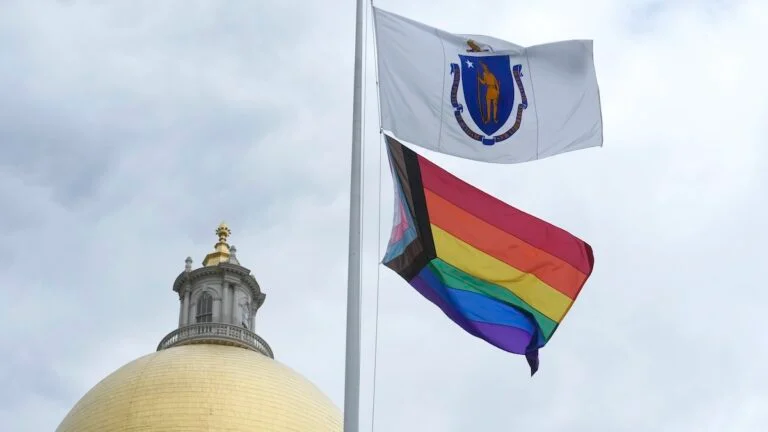Soft Clubbers, Evergroovers and Rave Aunts: Your current nightlife subcultures in the 21st century
By Benjamin Jackson
Copyright thescarboroughnews

Are you a Rave Aunt or an Evergroover? Do you prefer soft clubbing to daytimers?As the vocabulary for modern-day of nightlife attendees expands, it might be confusing to determine who is who in the hierarchy of the club.Here are some of the most common terms you might be called during a night – or a day in this era – out in town where you are.
I thought I had it figured out when I finally came to grips with terms such as ‘aura,’ ‘skibidi toilet’ and ‘rizz,’ only to discover from younger family members a whole new set of words to add to the vernacular – ones pertinent for an era I was familiar with growing up, that being “clubland” and all the nights out that came with it.
But according to Eventbrite, my generation is currently embarking on a renaissance when it comes to leaving the house and returning to the dancefloor, albeit in a wholly different light than during those halcyon days of the ‘90s and early ‘00s. Nostalgia is a strange temptress, right?
In this day and age, however, instead of queuing up outside your local Walkabout or Revolution Bar for a night out, many are instead opting for daytime sessions and are also eschewing the drugs-and-alcohol debauched aspect of it. Not so much ‘Human Traffic,’ according to Eventbrite, but opting still for the social and community aspect that comes along with clubbing.
In fact, 92% of searches in the United States alone have seen Gen Z gravitate towards fuelling up on coffee and caffeine, rather than being asked if they are ‘Sorted for E’s and Whizz,’ to quote the bard Jarvis Cocker.
The advent of Vicky McClure and company’s Day Fever events just demonstrates how popular the trend of ‘daytiming’ has become, and what was once considered a subculture of chemical experimentation is now more inclined to ask for soy milk in their coffee at the bar, rather than a round of Jaegerbombs.
So what are these terms being used currently? We’ve picked four that we know some of us in the office have been called previously – and thankfully, they weren’t insults either.
Your 21st-century clubbing terms – explained
Soft Clubbing/Soft Clubber
The term ‘soft clubbing’ refers to a growing trend in nightlife that offers a modern alternative to traditional clubbing. It’s a movement that prioritises wellness, mindfulness, and connection over late nights, alcohol, and the chaotic atmosphere of a typical nightclub.
The core idea is to create a club-like environment with great music and a vibrant atmosphere, but in a setting that feels more accessible and less draining. This trend has gained momentum largely thanks to younger generations, particularly Gen Z, who are seeking social experiences that are both fun and nourishing for their mental and physical well-being.
The concept of soft clubbing emerged as a direct response to a few modern social shifts – one of which is seeing more young people move towards health, wellness, and sober curiosity.
Many young people are choosing to reduce their alcohol consumption or go sober, leading to a demand for social spaces that don’t revolve around drinking.
The pressure to constantly go out and party is being replaced by a preference for more balanced lifestyles. Soft clubbing provides a way to socialise and dance without the negative side effects of a late night out, such as hangovers and sleep deprivation.
The COVID-19 pandemic also forced a re-evaluation of socialising. As people returned to public life, many were looking for more authentic, intimate connections rather than large, anonymous crowds.
A soft clubber generally speaking will often have a mocktail or a coffee in their hand instead of an alcoholic drink, enjoying the music and dancing, but they’re not pushing for a wild, chaotic night (the goal is a good time without feeling depleted the next day) and a priority on having genuine conversations and connecting with friends, rather than getting lost in a crowd.
Evergroover
An ‘Evergroover’ is a modern term for a dedicated clubber in their forties, fifties, and beyond. This subculture is challenging the idea that there is an age limit on enjoying electronic music and club culture. They are true music lovers who continue to attend raves, club nights, and festivals, often claiming they have more energy and passion for the music than people half their age.
For Evergroovers, it’s not just about the music—it’s also about the sense of community and the friendships they’ve built over decades on the dancefloor. They are the original pioneers of the modern club scene who are refusing to hang up their dancing shoes.
The term emerged as a playful and affectionate way to describe the older generation of ravers. It grew organically from social media and within the clubbing community itself as more people in their 40s, 50s, and 60s started publicly celebrating their continued involvement in the scene, with the rise of ‘daytimers’ (daytime parties) a key factor in the growth of this community, as it allows them to enjoy the music they love without the late nights.
You can easily identify an Evergroover by looking for a few key traits: they will likely have stories from the early days of rave culture, the ’90s acid house scene, or even the disco and funk eras of the ’70s and ’80s.
They’ll be on the dancefloor for the entire set, showing no signs of slowing down and their knowledge of different music genres and DJs will be extensive, reflecting a lifelong passion for the music.
I know a few in that case, then.
They are often part of a tight-knit group of friends who have been going to parties together for years, fostering a strong sense of community on the dancefloor.
Rave Aunt/Rave Mom
The terms ‘Rave Aunt’ and ‘Rave Mom’ describe a specific type of nurturing figure within a rave or festival group.
They are the responsible, caring friends who make sure everyone is safe, hydrated, and having a good time. These are affectionate labels for the people who bring a sense of family and care to a large-scale event – akin to someone trip sitting, for example.
The terms have been suggested to have originated within the electronic dance music (EDM) community, particularly on social media platforms like TikTok and Reddit, where ravers share their experiences and advice. As the rave scene has matured, so has its community.
The Rave Mom and Rave Aunt archetypes emerged to describe the people who look after others, a trend that reflects a greater emphasis on safety and community well-being at large events. They come prepared.
They’ll likely be carrying a small backpack with essentials like water bottles, electrolyte packets, snacks, and maybe even band-aids, and will periodically check in with each member of their group, asking if they need anything or if they’re feeling okay.
Though they still do have a slightly more mischievous side, they are still responsible ones, who are also focused on having a good time while still keeping an eye out and making sure no one gets lost in the crowd.
They are the person to go to if everything starts to go a little ‘Pete Tong’ at the club, in essence.
A ‘shuffler’ is a person who is skilled in the dance style known as the “shuffle.” This is a popular form of dance at electronic music events, particularly within the house and techno genres. The shuffle is a fast-paced, fluid footwork dance that involves a series of heel-and-toe movements, glides, and twists.
Originating in Melbourne, Australia, in the late 1980s, evolving from elements of other dance forms like the Charleston and the Running Man. It became a signature part of the rave and club scene in Australia and the UK throughout the ’90s.
The dance was popularised globally in the 2000s and 2010s through internet videos and music festivals, where people would show off their skills, leading to a new wave of shufflers around the world. They are easily identified by… well… the dance moves in question, along with a high level of energy and stamina to maintain their movements throughout a long set. They also happen to be in the heart of the crowd, focused on their own dance and sometimes lost in their own world.
Eventbrite have pulled together a list of Soft Clubbing events taking place across the United Kingdom – for more information or to find an event in your area, download the Eventbrite app for Android and iOS today.



